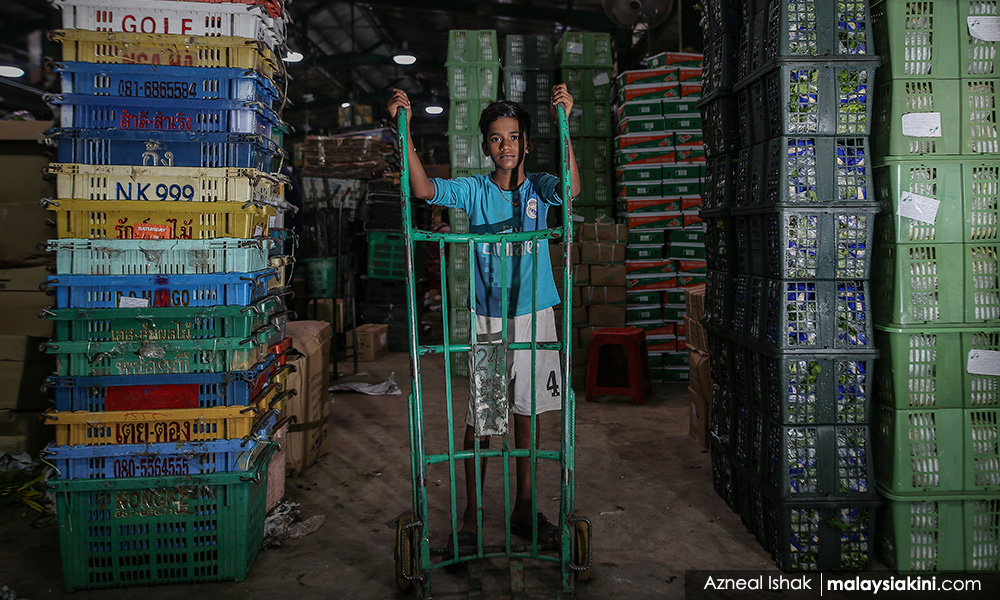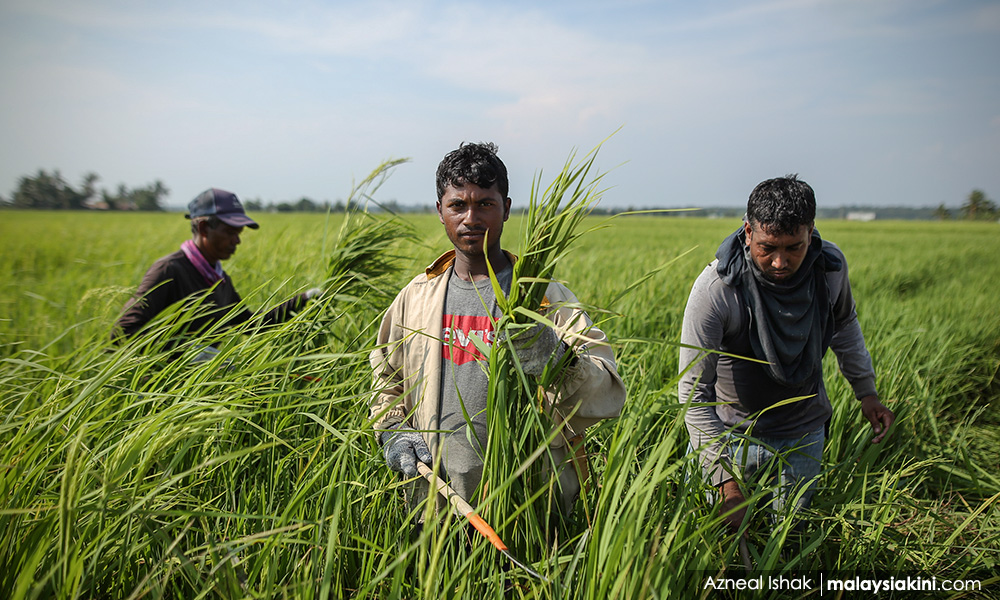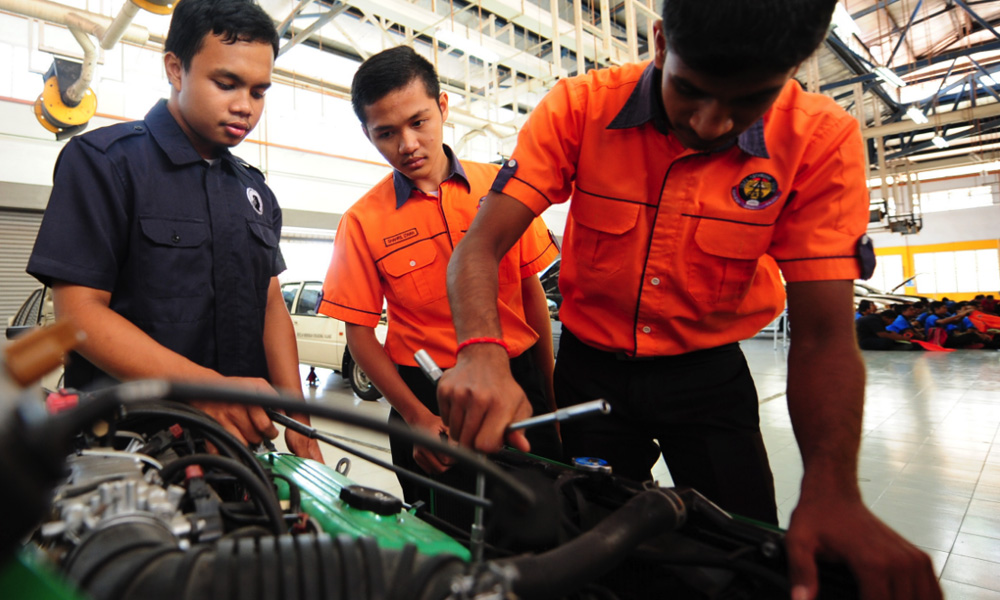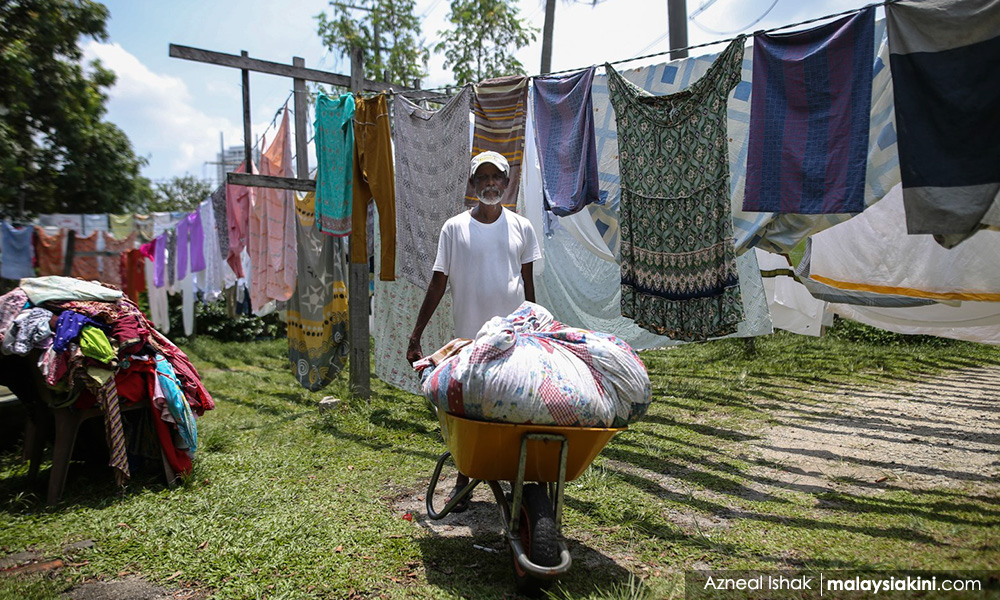
The Ministry of Human Resources (MOHR) has challenged some points raised by Malaysiakini columnist P Gunasegaram in his article titled “Dr M and Kula are clueless about labour policy”.
"When it comes to managing any country’s workforce, there are no easy answers, but there are a lot of challenges," said the Ministry in a statement today.
"Some of the challenges faced by MOHR as mentioned in the article were on issues of employing foreign workers, managing what is described as 3D jobs (dirty, difficult, dangerous), wage structure, expatriates and overall governance."
"What was not described by the author is the fact that the current minister has met with his stakeholders - the Malaysian Employer Federation (MEF) and the Malaysian Trade Union Congress (MTUC) - every month to discuss every decision on the management of foreign workers. Has the author considered that when he made his analysis?" asked MoHR.
According to statistics quoted by the MoHR, as at June 30, 2019, data from the Immigration Department showed the number of foreign workers in Malaysia was 2,002,427 workers.

These workers were from various Asian countries who plied their trade in manufacturing, construction, farming, services, agriculture, and as domestic helpers.
"This makes the foreign workers in Malaysia amount to about 13.2 percent of Malaysia’s total workforce. This rate is within Malaysia’s targeted 15 percent cutoff rate for foreign workers employed in Malaysia under the 11th Malaysia Plan.
"Before the introduction of the minimum wage, the ministry let the law of supply and demand dictate the income level. Nevertheless, this initiative did not increase wages in the manner it should have done.
"Thus, the government initiated the intervention via the introduction and implementation of the minimum wage in 2012 to set a minimum wage level in the hopes it would increase wages," it said.
MoHR said it continuously works closely with its tripartite members through the National Labour Advisory Council (NLAC) to address issues affecting the Malaysian employers and workforce, and are continuously reviewing and amending existing laws to produce better wages and non-wage benefits for employers and employees.

Responding to suggestions of automation as made by the columnist, MoHR said it has been actively working with various educational agencies and training institutes under the TVET Empowerment Committee led by the Ministry of Education (MOE) to produce more TVET graduates.
Besides that, the MoHR is also working with the Ministry of International Trade and Industry (Miti) under the National Industry4WRD Policy that was launched on Oct 31, 2018, with the objective of upskilling and reskilling existing workforce, and training new talents in Industry 4.0 skillsets.
These two policies are expected to upgrade the skills and income of the Malaysian workforce, it said.
MoHR also went on to say that in terms of hiring knowledge workers, Malaysia encourages highly-skilled expatriates to enhance our industries.
"To date, data show that we have allowed 123,077 expatriates (Home Ministry, April 30, 2019) to work in Malaysia. The industries these expatriates fills the most were found in the services industry (52.6 percent) and the information technology industry (30.4 percent).
"These highly-skilled expatriates are expected to transfer knowledge in their course of duty in Malaysia. The MoHR believes these initiatives would reduce the dependency on a low-skilled foreign workforce, and increase the supply of highly-skilled workers for the industries."

The MoHR conceded that there is still a need for foreign workers in the short term to fill in the resource gap needed by our industries.
"There are areas where (certain) industries find difficulty to employ local workers and where Malaysians may find the jobs less appealing.
"This gap arises due to increased education among our population who expect better jobs and better pay that commensurate with their educational attainment and lifestyle; and the changes in Malaysia’s economic structure from an agricultural to a services-based economy, among others."
"Malaysians, in general, have moved up the economic value chain. From the perspective of the MoHR, the influx of low-skilled foreign workers into Malaysia were meant to fill the needs of industries in areas that local jobseekers were not available or suitable to fill."
Addressing the classification of the workforce, the MoHR said that the skill classification is divided into skilled, semi-skilled and basic-skilled workers.
As of 2017, data from the Department of Statistics shows the average wages of these categories were found to be RM4,574, RM1,947, and RM1,531 respectively, with an overall average of RM2,880. This does not include inflationary factors which are not under MoHR's jurisdiction.
"If we were to look at recent wages data, we would find that the wage scale has moved up from 20 years ago."
The MoHR challenged the author's statement that the "import of labour impoverishes most Malaysians".
"This may not be accurate as Malaysians have made great strides in education, economy and employment, and overall living condition.
"Our poverty rate has greatly reduced and Malaysians are seeing greater freedom and security," it said.
MoHR went on to thank Gunasegaram, saying it took "cognisance of the author’s passion in wanting a better Malaysia".
"This is the hope of every Malaysian. The ministry would like to extend our gratitude to the author for keeping us on our toes with his views.
"This is in line with the government’s views that everyone plays a role in ensuring that our people play a check and balance role on the government of the day," it said.
The MoHR concluded by urging Malaysians to be patient with Malaysia Baharu as some reforms take longer than others. The ministry gave its assurance that the current government will continuously strive to institute these reforms and correct the ills of the past to move towards its vision of a better Malaysia. -Mkini



No comments:
Post a Comment
Note: Only a member of this blog may post a comment.